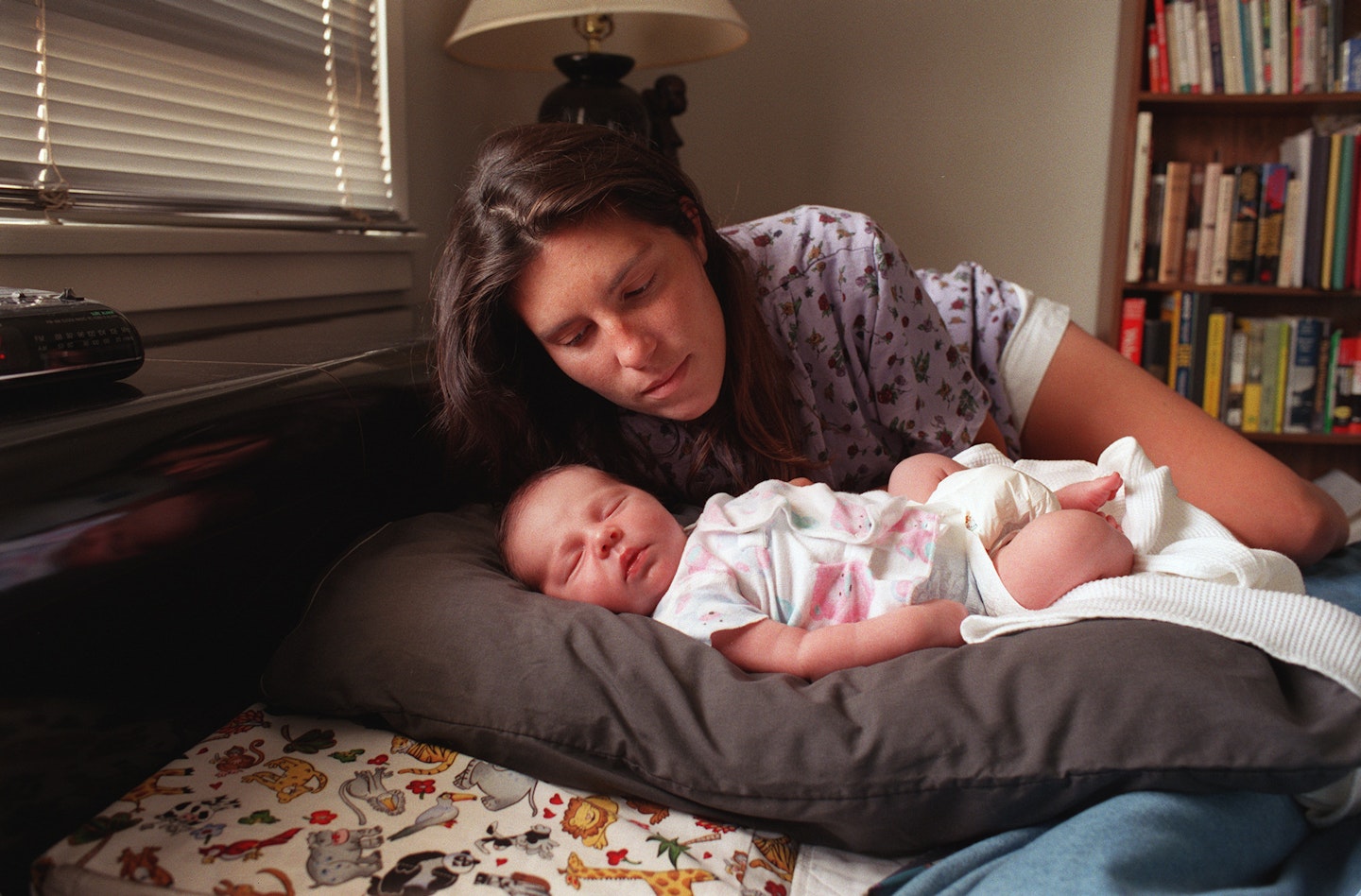Ever wondered about the lullabies you’re singing in a desperate attempt to send you child off to La La Land? When you think through the lyrics to Rock-A-Bye-Baby and Amazing Grace, the underlying message is more of a warning than an ode to sleeping peacefully.
In the 1920s, the Spanish poet Federico García Lorca studied the sad depths and therapeutic qualities of lullabies that lure us into their lament with a poetic verse and catchy rhythm. His research proved there’s more to lullabies than meets the ear.
Richard Dumbrill, a leading expert on ancient music at the British Museum agrees that lullabies can have a somewhat menacing message from mother to baby – keep quiet or else.
Speaking about a Babylonian tablet from four millennia ago that’s kept at the London museum, Dumbrill says: "They try to tell the child that he has made a lot of noise, that he woke up the demon, and if he doesn't shut up right now, the demon will eat him."

Little wonder that many mothers prefer Somewhere Over the Rainbow or – shock horror – a pop song when it comes to soothing their precious child.
The amount of apps and sleeping aids on the market could pose a larger threat to the traditional lullaby than Ed Sheeran or Adele.
Are there any benefits to singing old-fashioned lullabies or are they simply past their expiry date?
What’s their purpose?
Zoe Palmer, a musician who conducted a lullabies project at the Royal London Hospital with a diverse community of women says lullabies are an important means of communication between the generations.
She said: "Lullabies are telling you the history of the country, or telling you how you should or shouldn't run your life - kind of like advice columns for babies.”
Women from China, India, as well as Italy, Spain, France and Eastern Europe were encouraged to share existing lullabies from their respective cultures and create new ones as a group.
Palmer says: "Wherever you go in the world, women use the same tones, the same sort of way of singing to their babies."
How do they work?
Much like pop songs, lullabies revolve around an exaggerated melody and have a simple, high pitch that’s commonly associated with love and affection (yes Justin Bieber, we mean you).
Structurally, the music includes intermittent repetitions that are easier for a baby’s brain to process.
Sally Goddard Blythe, a Consultant in Neuro-Developmental Education, notes that lullabies follow a triple metre rhythm that gives them a "characteristic swinging or rocking motion" that reflects what the baby experienced in the womb.
That explains Rock-A-Bye-Baby!

What are the benefits?
Much like nursery rhymes, lullabies have long been considered good for the brain as the repetitive story-telling helps with language, memory and broader social development.
Studies conducted by Dr. Jeffery Perlman at the New York Presbyterian Hospital found that gentle music therapy slows down the heart rate of premature babies and helps them feed and sleep better.
As proven by the women at the Royal London Hospital, lullabies are also an important cultural practice because they preserve our heritage and can be passed from generation to generation, bringing together family members of all ages.

Will they survive?
If you define a lullaby by it’s musical structure, cultural significance and lamentable love story, there’s no reason our traditional songbook can’t evolve to include pop songs that resonate across the generations.
New research from parenting programme, Emma’s Diary, found that nearly a third of mums (31%) sing a contemporary tune instead of a traditional lullaby.
Just over a third (35%) of mums admitted they’re more familiar with the lyrics of pop songs and an additional 37% have an emotional connection with their chosen tune.
So it’s no surprise the traditional lullaby has been passed over for a power ballad.
Top 10 pop songs to sing your baby to sleep:
-
Ed Sheeran – Thinking Out Loud
-
Adele – Hello
-
Bob Marley – Don’t Worry About A Thing
-
Adele – Someone Like You
-
Sam Smith – Stay With Me
-
Tracey Chapman – Fast Car
-
Ellie Goulding – Love Me Like You Do
-
Beyoncé – Halo
-
Oasis - Wonderwall
-
Taylor Swift – Shake It Off
A similar study from BT had previously found that today’s parents aren’t familiar with the classics, with Dads being more likely to sing a football anthem or the England rugby team's Swing Low Sweet Chariot.
Whether they preferred Adele or a little Twinkle Twinkle, over two thirds of mums (68%) told Emma’s Diary that singing before bedtime makes their child feel calm.
Want to see the lullaby live on?
If you want to see the traditional lullaby live on, Babycentre have you covered with a list of favourite lullabies, their lyrics and podcasts so you can download the music.
Twilight fans may prefer some of Bella's Lullaby, composed by Carter Burwell, and played here by Stan Whitmire with basic sheet music:
Whatever your musical tastes, it’s hard to beat Brahm’s Lullaby, especially when it’s on a four hour repeat so you can nap while baby does:
Sweet dreams to all the Closer mums and babies. Have a favourite tune to share? Tell us on Facebook and Twitter(@CloserOnline).
